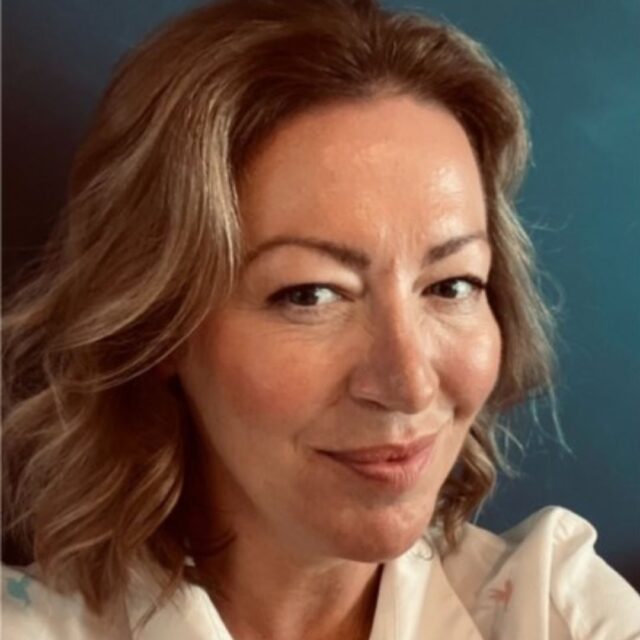Lorna Harvey
Senior Psychotherapist: A Wilderness Way
MSc Psychology (Conversion)

My degree provided me with both the theoretical knowledge and practical skills necessary for a successful graduate career.
I currently work as a senior psychotherapist at Wilderness Way, Penrith. Wilderness Way is one of the country’s leading providers of residential care for children who have suffered trauma and exploitation and are in crisis. Our holistic, child-centred care offers children a safe space to develop the wellbeing, skills and independence they need to achieve outstanding outcomes and move successfully into their futures.
A typical day in my job involves working 1:1 therapeutically with young people and I also supervise a team of clinicians to ensure wrap around care. I support our clinical team, ensuring high-quality, evidence-based therapeutic care for vulnerable children. I provide clinical supervision and support, helping our team grow professionally and deliver exceptional results. Days are varied and are hugely dependent on our young people. We are all there to make a difference and even the smallest of wins can mean the world.
I was introduced to the fastrack programme at Edge Hill. I’d made a decision to change career, I felt a little stuck as I didn’t have the qualifications needed to start a degree. Then I was introduced to the preparation for higher education programme. This course made me realise I had the capacity for learning and built my confidence hugely. The lecturers were so supportive and knowledgeable. Without the fastrack programme I wouldn’t have been able to build the career that I have as I would never have known my own capabilities.
I studied both my undergraduate and postgraduate degrees at Edge Hill University. I studied my undergraduate degree in counselling and psychotherapy and then progressed onto my postgraduate studies and completed a MSc Psychology (Conversion) degree.
My favourite things about studying at Edge Hill were the supportive learning environment and the diverse range of modules on the course. The diverse modules have enabled me to deep dive into specific topics I was interested in such as developmental trauma. The accumulation of this knowledge really enabled me to lay the foundations for a career supporting looked after young people.
There were some valuable research opportunities in the psychology department whilst I was studying, which enabled me to get involved in projects that I am passionate about.
My degree provided me with both the theoretical knowledge and practical skills necessary for a successful graduate career supporting children with a history of trauma. Alongside the skills gained on the counselling and psychotherapy degree I have been able to respond effectively and compassionately to their needs from a psychotherapeutic approach as well as having an understanding of the biopsychosocial framework.
My work experience which ran alongside my studies introduced me to different areas of specialism which included bereavement, cancer care and trauma. It was one of these incredible placements with Key Unlocking Futures which changed the trajectory of my studies and led me to pursue a career supporting young people with a history of trauma.
During one of my work placement sessions I heard a story from a young girl who was at risk of homelessness which had such an impact on me and my career pathway. She shared the neglect and abuse she had endured at the hands of a family member and how she had lost all hope of ever recovering or having a meaningful life. I have since recognised the need for young people from backgrounds of trauma and neglect to feel in control of their life outcomes – a focus of most of my research.
The top three skills I have gained from my studies are:
Statistical analysis skills have enabled me to present meaningful data during clinical governance and being proficient in analysing such complex data has supported me in rolling out evidence-based programmes.
Clinical and therapeutic skills have enabled me to assess young people within our care ensuring that we work together as a multi-disciplinary team in the design of unique psychotherapeutic programmes that meet the need of each individual.
Critical thinking has empowered me hugely and informed my ethics allowing me to question and challenge the status quo within my profession. A focus of this has been the medicalisation of distress within the demographic I support and I am a strong advocate for recognising mental health as brain health.
Edge Hill University has fostered in me a lifelong passion for learning. I may pursue a psychology doctorate in the future once my career has advanced to a point where I can dedicate the time needed.
For anyone considering studying at Edge Hill University my advice would be to go for it! Remain open minded and stay curious. Choose topics that really ignite something in you as you’ll need that focus and motivation to produce your best work. Enjoy being a student; it really is one of the most precious of life stages and we’re so privileged to have the opportunity to learn from some of the academics at such a supportive university.